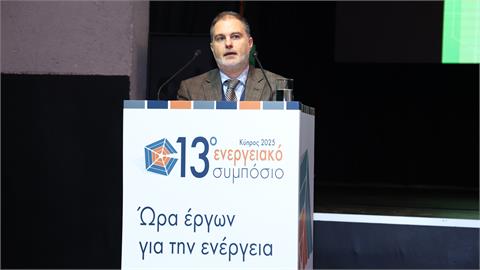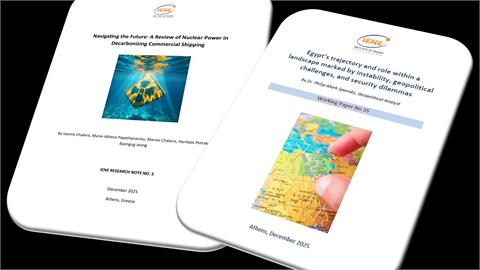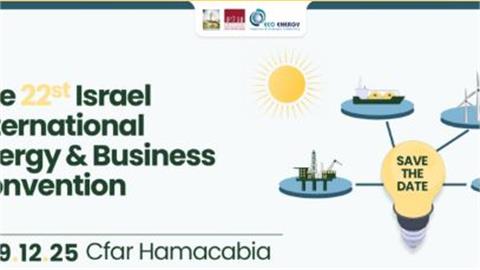The Chairman and Executive Director of IENE Mr. Costis Stambolis participated in a special event jointly organized by the Konrad Adenauer Stiftung (KAS) and the Institute of International Economic Relations (IDOS) last Tuesday, November 23 in Athens in order to examine the new energy architecture that lately tends to emerge in Europe. The event, which took the form of a 2-hour open discussion between four experts on energy and economics, was prefaced by Mr. Charalambos Tsardanidis, Professor at
The Chairman and Executive Director of IENE Mr. Costis Stambolis participated in a special event jointly organized by the Konrad Adenauer Stiftung (KAS) and the Institute of International Economic Relations (IDOS) last Tuesday, November 23 in Athens in order to examine the new energy architecture that lately tends to emerge in Europe. The event, which took the form of a 2-hour open discussion between four experts on energy and economics, was prefaced by Mr. Charalambos Tsardanidis, Professor at the University of the Aegean and Director of the DOS and Mr. Henri Bohnet, representation of the KAS in Greece and Cyprus. The event was held hybrid in Greek and English with simultaneous transition.
The moderator of the discussion was the lecturer at the International University of Greece and former Vice President of the Energy Regulatory Authority, Dr. Theodoros Panagos who through a series of targeted questions and topics highlighted most aspects of the new energy reality in which Europe has been moving in recent months, as a result of high gas and electricity prices that have prevailed in parallel to the pursued EU green agenda, with its ambitious targets for drastic emission reductions and high RES penetration. In addition to the Chairman of IENE, discussion participants included Mr. John Maniatis, Professor at the University of Piraeus and ex Minister for Energy, Dr. Marika Karagianni, lecturer at the University of Peloponnese and the International University of Greece and Finn Arnd Wendland, adviser at the Institute of Energy and Climate Economics.
The discussion focused on the current energy crisis, which is characterized by high electricity and gas prices. After searching for the causes that led to unprecedented levels of prices and the serious consequences for consumers and public finances of various countries, the discussion focused on the next day and the structure of the optimal energy mix that will safely allow the energy transition to clean fuels. After all participants agreed that this is a long process, which can take 30 to 40 years, and hence, the role of various fuels beyond RES was examined. In this context, specific reference was made to natural gas, for which there were converging views that it would be a key fuel for most, if not all, European countries. In this sense, it cannot be excluded from the European energy mix sought.
Furthermore, the discussion participants referred to nuclear energy which, due to its zero emissions, also has a specific role to play in the energy transition and therefore it should be included in the desired energy mix in countries that have operational experience and do not face strong environmental opposition. The case of extending the operation of coal-fired power plants using CCUS technology, which retains and stores emissions, was also examined as it would help ensure smooth market conditions during energy transition. Finally, issues related to energy security were examined at pan European level but also in SE Europe, both in terms of ensuring a continuous flow of energy (ie oil, gas and electricity) and on account of prices which should remain low – in contrast to present day high prices -, otherwise they could lead to energy poverty a significant part of the population.




